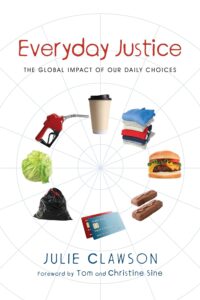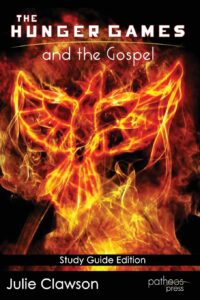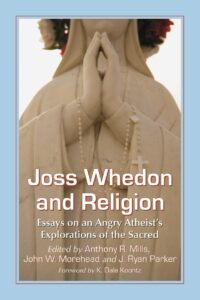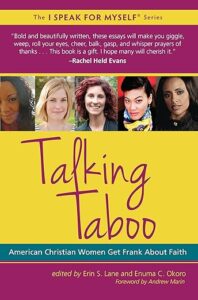Books

Where does your chocolate come from? Does it matter if your coffee is fair trade or not? It matters–more than you might think. Julie Clawson takes us on a tour of everyday life and shows how our ordinary lifestyle choices have big implications for justice around the world. She unpacks how we get our food and clothing and shows us the surprising costs of consumer waste. How we live can make a difference not only for our own health but also for the well-being of people across the globe. The more sustainable our lifestyle, the more just our world will be. Everyday justice is one way of loving God and our neighbors. We can live more ethically, through the little and big decisions we make every day. Here’s how.
“Julie Clawson gets it. First, she gets it that most of us suburban Americans feel overwhelmed and guilty when we hear about justice. That’s why she focuses on positive, doable ways that we can improve the justice quotient of our lives. Second, she gets it that we in the ‘developed world’ often have an undeveloped theology and lifestyle when it comes to key issues like fair trade, modern-day slavery, fossil fuel dependence, ethical eating and buying, and debt. That’s why she gently, positively and hopefully helps us get ‘development’ where we need it most.”
The Hunger Games and the Gospel (Patheos Press, 2012)

In a globalized world full of uncertainty and injustice, Suzanne Collins’ Hunger Games series has captured the imaginations of readers looking for glimmers of hope. The tale of Katniss Everdeen’s journey of survival in the post-apocalyptic country of Panem, where bread and circuses distract the privileged and allow a totalitarian regime to oppress the masses, parallels situations in our world today. At the same time, the series’ themes of resistance to oppression and hope for a better world, portrayed honestly as messy and difficult endeavors, echo the transformative way of life Jesus offered his followers.
The Hunger Games and the Gospel explores these themes in The Hunger Games series that have resonated so deeply with readers by examining their similarity to the good news found in Jesus’ message about living in the ways of God’s Kingdom. Taking the rich statements of the Beatitudes, which serve as mini-pictures of God’s dreams realized on earth as in heaven, each chapter reflects on how those pictures are exhibited both in the narrative of The Hunger Games, and in Jesus’ time, and then explores their significance for our own world. Thought-provoking questions provide direction for personal reflection and group discussion. Readers are invited to allow the inspiration of The Hunger Games help them live in the ways of the Kingdom of God by discovering how they too can work toward the possibility of a better world.
My favorite analysis of “The Hunger Games”… Clawson does a fantastic job of reminding readers that Collins’ world of occupation, oppression, excess, and poverty is not so far removed from our own, and that it is exactly the kind of world in which Jesus himself lived.
Joss Whedon and Religion: Essays on an Angry Atheist’s Exploration of the Sacred (McFarland & Company, 2013)

This is a collection of new essays on the religious themes in, and the implications of, the works of Joss Whedon… The book addresses such topics as ethics, racism, feminism, politics, witchcraft, spiritual transformation, identity, community, heroism, apocalypse, and other theologically significant themes of Whedon’s creative enterprises.
Includes Julie Clawson’s chapter “Just to Love and Be Loved in Return: Identity and Love in the Dollhouse”
Talking Taboo: American Christian Women Get Frank About Faith (White Cloud Press, 2013)

The latest book in the I Speak For Myself series addresses the experiences of faith, gender, and identity that remain taboo for American Christian Women Under 40.
Includes Julie Clawson’s chapter “On Being a Strong Woman”
Articles
- Imagination, Hope, and Reconciliation in Ricoeur and Moltmann in the Anglican Theological Review, Spring 2013, Volume 95, Number 2
- Life Under Empire in Sojourners Magazine, April 2012
- Making a Tangible Difference in Relevant Magazine March 2010
